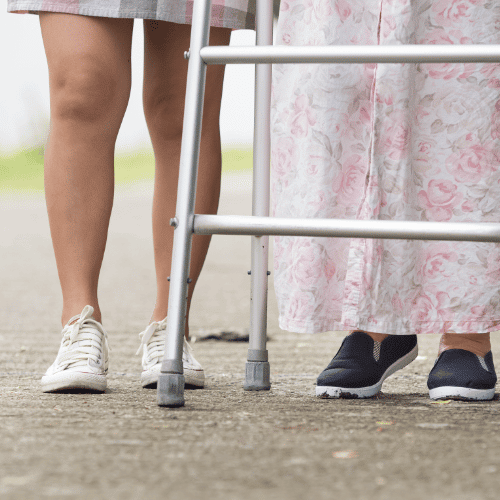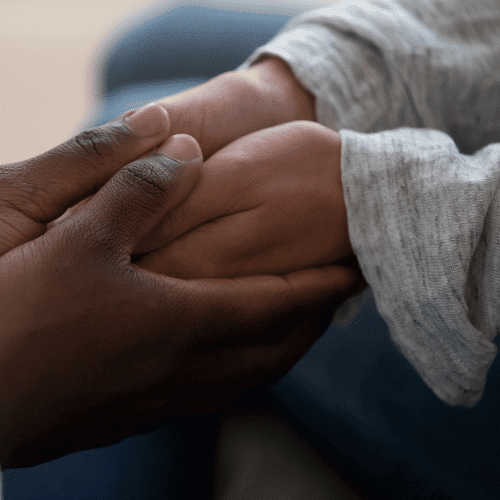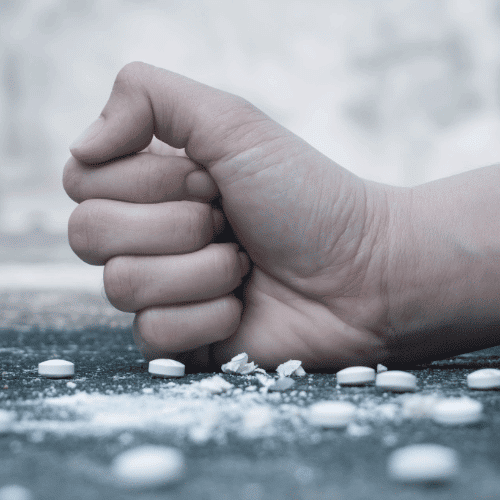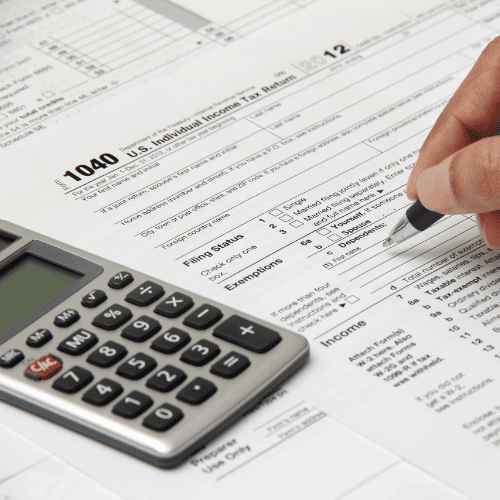Come ti senti? Sii onesto con te stesso. Ti senti "blu", giù o triste a volte? È normale provare una serie di emozioni, ma quando questi sentimenti hanno un impatto sulla tua vita quotidiana, potrebbe essere un segno di una condizione più grave nota come depressione.
-
Chiama il 988
Se hai pensieri suicidi, ansia o depressione e hai bisogno di parlare con qualcuno, 988 ti metterà in contatto con uno specialista qualificato in salute mentale e prevenzione del suicidio. Chat web sono disponibili anche
Sappi che non sei solo e che puoi contare su un aiuto gratuito e riservato, sia che tu o qualcuno che conosci stia attraversando un momento difficile.
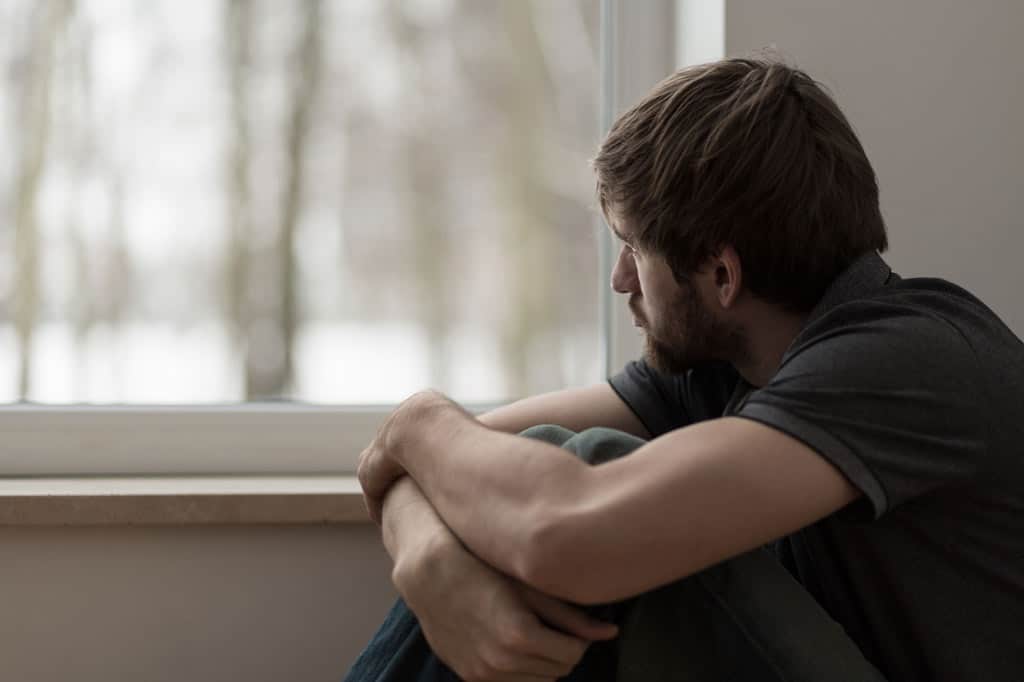
Depressione 101
La depressione può colpire chiunque e può apparire diversa nei bambini, negli adolescenti, nei giovani adulti e negli adulti. Può verificarsi da solo o in combinazione con altre condizioni di salute mentale e malattie croniche. Ad esempio, una diagnosi o una battaglia contro il cancro, il diabete o le malattie cardiache possono scatenare la depressione.
Gli eventi della vita possono anche scatenare sintomi. Ad esempio, la gravidanza può portare a sintomi di depressione sia durante la gravidanza che dopo.
Le stagioni possono farti sentire triste, specialmente durante un inverno lungo e freddo. Può anche accadere in qualsiasi periodo dell'anno.
Soffro di depressione?
Ci sono diversi segni e sintomi di depressione e possono variare a seconda dell'età. Mentre sentirsi tristi è un sintomo della depressione, è più di questo. Si sente anche senza speranza e senza valore per più di due settimane, insieme a un cambiamento nel fare cose che ti piacevano.
Il Istituto Nazionale di Salute Mentale suggerisce di porsi queste domande.
Sento...?
- Coerentemente triste, ansioso, inutile o "vuoto"?
- Disperato o pessimista?
- Facilmente frustrato, arrabbiato, irritabile o irrequieto?
- Non sei interessato agli hobby o alle attività che una volta mi piacevano?
- Mi sto ritirando da amici e familiari?
- Ti senti in colpa, inutile o impotente?
- È più difficile prendere decisioni, ricordare o concentrarsi?
- Le mie abitudini alimentari e di sonno quotidiane sono cambiate?
- Stanchi, affaticati o hanno subito perdite di memoria?
- Dolori e dolori, mal di testa, crampi o problemi digestivi che non hanno una causa o non si interrompono con il trattamento.
- Come farmi del male o suicidarmi?
Gli adulti possono anche sperimentare altri sintomi come insonnia notturna, diminuzione della libido, sintomi gastrointestinali, tristezza o dolore.
I tuoi sintomi possono variare da quelli di un amico o di un familiare.
Gli adolescenti/adolescenti dovrebbero anche chiedersi se si sentono...?
- Che non vanno altrettanto bene a scuola?
Mentre i sintomi della depressione sono simili negli adolescenti e negli adulti, ci sono alcune differenze. Conoscere i segni premonitori della depressione e di altre condizioni di salute mentale negli adolescenti, e come ottenere supporto per gli adolescenti. Non sei solo. L'aiuto è disponibile.
Come viene diagnosticata la depressione?
La depressione viene diagnosticata dal numero di sintomi che hai ogni giorno. Se hai cinque sintomi di depressione al giorno, quasi tutto il giorno, e questo schema continua per almeno due settimane, potresti soffrire di depressione. Il National Institute of Mental Health afferma che uno dei sintomi deve essere uno stato d'animo depresso o una perdita di interesse in quasi tutte le attività.
Uno specialista della salute comportamentale può diagnosticare la tua condizione e fornire supporto e trattamento. Se non riesci a ottenere un appuntamento, puoi anche ottenere aiuto e supporto dal tuo fornitore di cure primarie.
Aiuto per la salute mentale
Se ti senti giù e questo ha un impatto sulla tua vita quotidiana, dovresti cercare l'aiuto di un professionista della salute comportamentale. Se hai bisogno di aiuto per trovarne uno:
- Chiama il 211 oppure
- cerca una risorsa per la salute mentale vicino a te nel database più completo del Maryland sulle risorse locali per la salute comportamentale, alimentato da Maryland Information Network.
Se sei un genitore o un tutore, informati programmi di salute mentale specificamente progettati per gli adolescenti.
Se hai bisogno di supporto immediato, chiama il 988 e parla con un professionista qualificato.
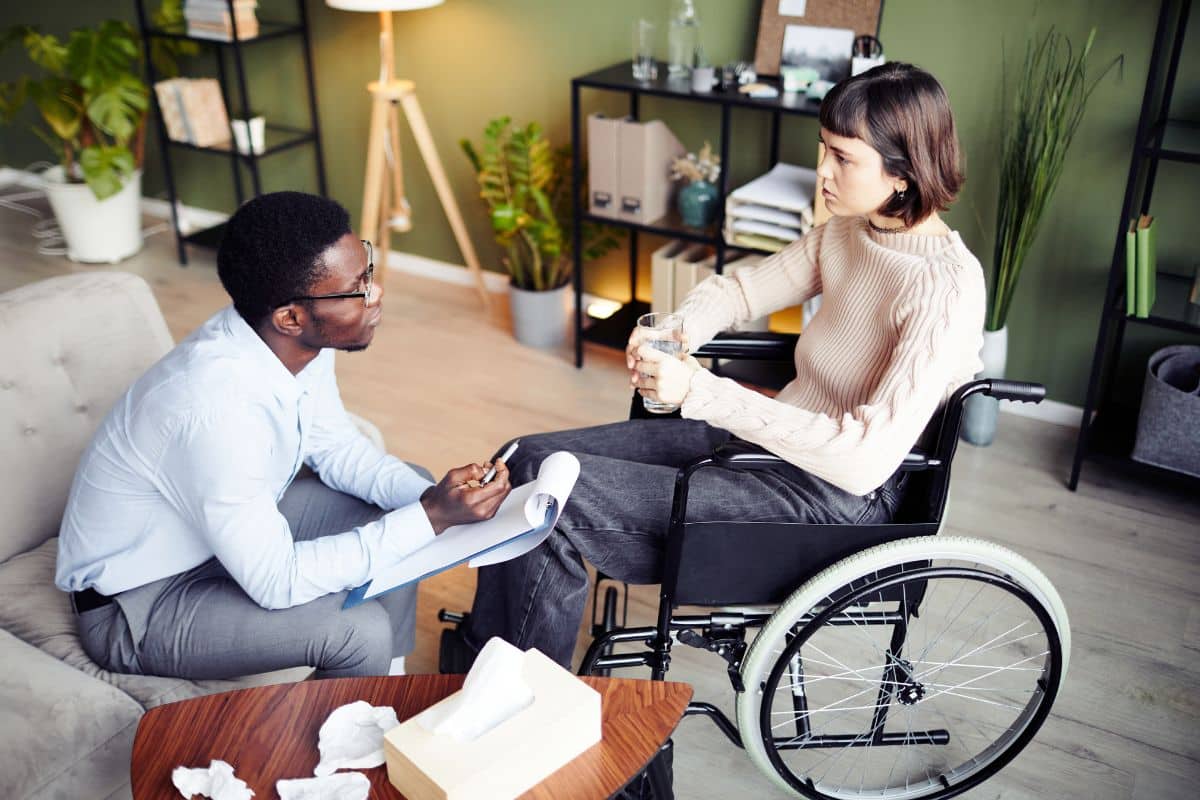
Supporto riservato per adulti
211 capisce che è difficile ottenere un appuntamento per la salute comportamentale e, a volte, quando ricevi quell'appuntamento, non è con una persona con cui fai clic o ti senti a tuo agio nel condividere come ti senti veramente.
Durante un discussione con 92Q e professionisti della salute mentale sullo stabilire obiettivi di salute mentale, 211 e altri relatori hanno condiviso la difficoltà nel trovare un terapista che sia una persona di colore o qualcuno che ti capisca. Se non ti senti a tuo agio con la persona, potresti sentirti meno incline a condividere tutto.
Tuttavia, non aspettare di trovare il terapista perfetto. Se non riesci a ottenere un appuntamento con la tua prima scelta, mettiti in lista d'attesa e nel frattempo prendi un appuntamento con qualcun altro. Inizia la conversazione con qualcuno e alla fine arriverai al terapeuta con cui ti connetti veramente.
Oltre alla sfida di ottenere un appuntamento, potrebbero essere tentativi ed errori trovare una connessione. Se trovi qualcuno con cui non ti connetti, va bene. Cerca qualcun altro.
Il 211 è sempre qui per aiutarti. I nostri programmi sono gratuiti e riservati e ti mettono in contatto con un professionista qualificato, attento e compassionevole.
MDMindHealth/MDSaludMental fornisce supporto per messaggi di testo ispiratori e motivazionali per gli adulti. È disponibile in inglese e spagnolo.
Entrambi questi programmi sono disponibili quando ne hai bisogno.
Non sei solo! È disponibile un aiuto gratuito e confidenziale.
Supporto alla salute mentale per i giovani
Ricorda, la salute mentale può avere un aspetto diverso nei bambini, negli adolescenti e nei giovani adulti. Conosci i segnali di pericolo e ottieni aiuto dai programmi di salute mentale specifici per adolescenti nel Maryland.
211 fornisce un sistema di supporto tramite messaggi di testo gratuito incentrato sui giovani. Gli adolescenti possono iscriversi MDYoungMinds. Fornisce messaggi di testo di supporto. Questi possono includere risorse sulla depressione, la salute mentale di adolescenti e adolescenti e programmi di supporto.
Gli adolescenti possono anche entrare in contatto con coetanei che hanno subito un problema di salute mentale o un trauma attraverso il Programma Take Flight.
Puoi anche scarica il kit di risorse per la famiglia in materia di salute dei bambini. È una guida completa ai sintomi e ai segni della salute mentale, fornendo anche opzioni di trattamento e supporto nel Maryland.
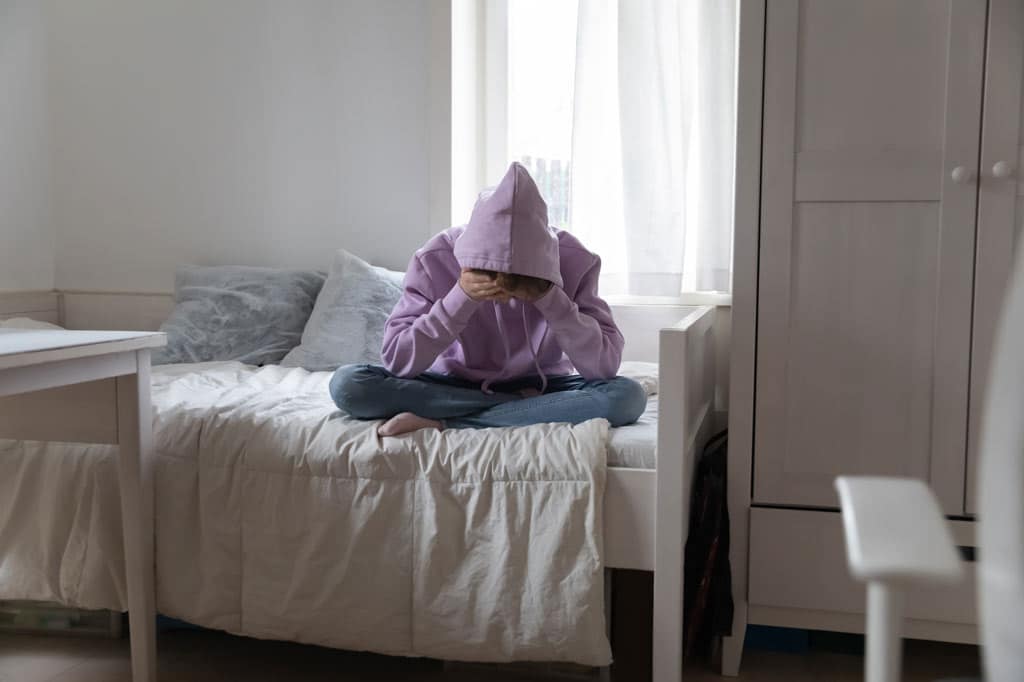
Modi per migliorare la salute mentale
Oltre a questi programmi gratuiti e riservati, puoi sostenere la tua salute mentale parlando con un adulto fidato. Può trattarsi di un professionista qualificato, un genitore, un familiare, un tutore, un insegnante, un consulente scolastico o un medico, compresi i pediatri.
Oltre a ottenere l'aiuto di cui hai bisogno dai professionisti, è importante trascorrere del tempo con amici e familiari e rimanere attivi, seguendo una routine del sonno regolare e mangiando cibi sani.
Prevenire il suicidio con la consapevolezza
Puoi anche provare esercizi mente-corpo come la consapevolezza per aiutarti a cercare supporto e aiuto quando stai vivendo pensieri di suicidio o ti senti giù. Questi sono video didattici sulla consapevolezza da Ora conta ora, una raccolta di risorse incentrate sulla prevenzione del suicidio con ricerche, risorse e resoconti di prima mano di pensieri suicidari.
Now Matters Now fornisce abilità di consapevolezza e sottolinea che una pratica di consapevolezza è "il tuo peggior nemico" quando hai pensieri suicidi.
Ricorda, il supporto individuale per la salute mentale è sempre disponibile anche chiamando o inviando un SMS al 988.
